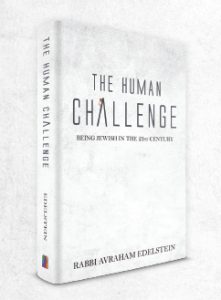
“And behold it was very good.” This is the yetzer hara
(the bad inclination) … [For] without the yetzer hara,
a person would not build a home or marry a woman;
he would neither have children nor engage in business.
Midrash Rabbah Genesis (9:7)
The deepest part of us — our souls — genuinely wants to do the right thing. However, there is another side to us, the yetzer hara (the negative inclination). [1] The yetzer hara may take many forms. The main tool of the yetzer hara is not frontal seductions and overwhelming desires; it
is thoughtlessness. And thoughtlessness is achieved by busyness — by making sure that our every waking moment is filled with work, texts, driving, checking our various social media accounts. Through this, it ensures that we never find the time to take a step back, establish our goals, and assess whether we are on track. [2]
The yetzer hara also chips away at our commitment to create ambiguity. It then exploits that ambiguity. For example, we may know that it is wrong to speak negatively about someone else (lashon hara). However, the yetzer hara alerts us to just how delicious it is to share salacious
news with a friend. It then chips away at our commitment by ensuring that we remain a non-contemplative person. We act negatively once, and the second time gets easier. We begin to find ways of justifying the behavior to ourselves as not being prohibited at all. [3] The Ramchal tells us that the non-contemplative person is like a blind person walking on the narrow path at the top of a windy river-bed. One wrong move, one stumble, and the consequences can be disastrous. [4]
ENDNOTES
[1] See, for example, Talmud, Tractate Bava Batra 16a as per the verse in Genesis 8:21: “For the inclination of the heart of man is evil from his youth.”
[2] Ramchal, Mesilat Yesharim, Chapter 2.
[3] Talmud, Tractate Kiddushin, p. 40a.
[4] Ramchal, ibid.
Continue reading The Negative Inclination.
Read the previous essay, Passion — the Missing Link.
Purchase a copy of The Human Challenge.
Olami Resources is happy to present a series of free installments featuring Rabbi Avraham Edelstein’s important new book, The Human Challenge. This week’s essay is from Section One – A Purposeful Life.
Rabbi Avraham Edelstein serves as the Education Director of Neve Yerushalayim College for Women and a senior advisor to Olami. Many of Rabbi Edelstein’s foundational publications addressing the world of Kiruv appear on OlamiResources.com.



















